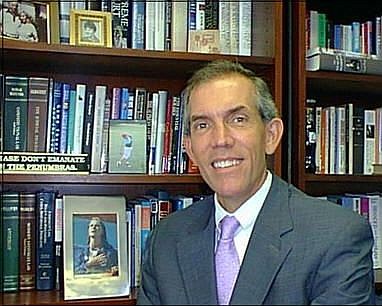
In an unusual legal move that sent ripples throughout the state’s pari-mutuel industry Friday, an appellate court reversed itself and decided that a Northwest Florida racetrack cannot have slot machines without the authorization of the Legislature.
The ruling by a three-judge panel of the 1st District Court of Appeal sided with Attorney General Pam Bondi and Gov. Rick Scott’s administration, which sought a rehearing after a 2-1 ruling this spring in favor of Gretna Racing in Gadsden County.
As they did in the earlier opinion, the judges Friday asked the Florida Supreme Court to weigh in on the issue of whether pari-mutuels can have slot machines if local voters approve, or if the games require the express say-so of the Legislature.
Rehearings are often sought by lawyers on the losing sides of issues but are rarely granted.
The Gretna case is even more unusual because Judge Nikki Ann Clark, who joined Judge Robert T. Benton in May’s majority opinion, retired while the request for rehearing was pending. The May ruling would have given the small Northwest Florida facility permission to add slot machines after Gadsden County voters approved them.
The court decided against granting Bondi’s request for an “en banc,” or hearing before the full appeals court, in favor of a rehearing before a three-judge panel with a new member. Judge Ross L. Bilbrey on Friday joined the majority opinion authored by Judge Scott Makar, who wrote a scathing dissent in May.
The case hinges on a semantic analysis of a 2009 law establishing eligibility for slot machines at pari-mutuels.
The 2009 law, which went into effect the following year, was an expansion of a 2004 voter-approved constitutional amendment that authorized slot machines at seven existing horse and dog tracks and jai-alai frontons in Broward and Miami-Dade counties.
The 2009 change allowed a Hialeah track, which wasn’t operating at the time the amendment was approved, to also operate the lucrative slots. The law in question consists of three clauses, including one that deals with counties outside of Broward and Miami-Dade.
State regulators last year denied the Gretna racetrack a slots license, arguing the Department of Business and Professional Regulation was “not authorized to issue a slot machine license to a pari-mutuel facility in a county which … holds a countywide referendum to approve such machines, absent a statutory or constitutional provision enacted after July 1, 2010, authorizing such a referendum.”
The agency justified its decision with a non-binding opinion by Bondi.
Lawyers for Gretna argued the statute does not include the word “enacted,” and other counties do not need prior authorization from the Legislature to get the requisite voter approval for slots.
But, in Friday’s ruling, Makar wrote that Bondi’s interpretation of the law was “spot on.”
“The alternative view, which would restructure the statute and change its meaning to allow slot machines to be deployed on a statewide basis without any clear authority to do so, is inconsistent with principles of statutory and constitutional construction, legislative intent, and the history of laws prohibiting slot machines in the State of Florida,” he wrote.
Makar also raised the question of whether the Legislature has the authority to approve slot machines outside of Broward and Miami-Dade counties, based on a previous Florida Supreme Court ruling in a case known as “Greater Loretta.” That opinion, which dealt with an interpretation of Florida’s 1968 Constitution, found that “all other lotteries — including bolito, cuba, slot machines, etc., are prohibited.” Makar asked the Supreme Court for guidance.
“So which is it? Are slot machines a form of lottery that only the people may approve via constitutional amendment? Or are slot machines not prohibited as lotteries under (the state Constitution’s) article X, section 7, which may be legislatively authorized statewide without constitutional authority?” Makar wrote.